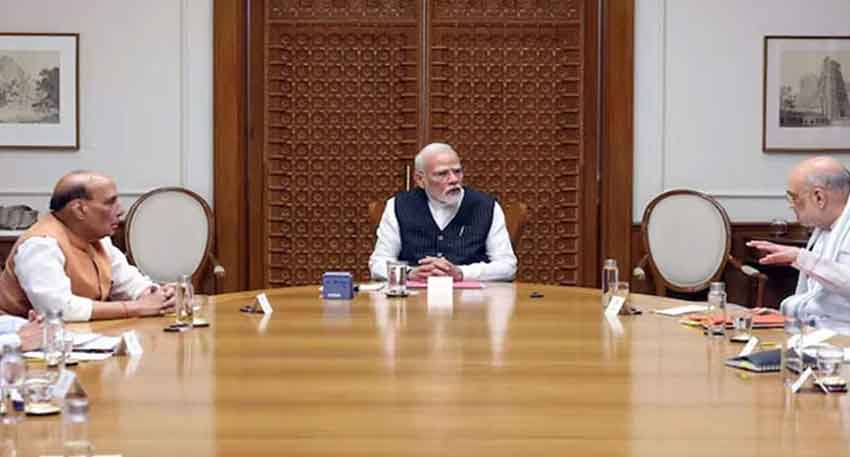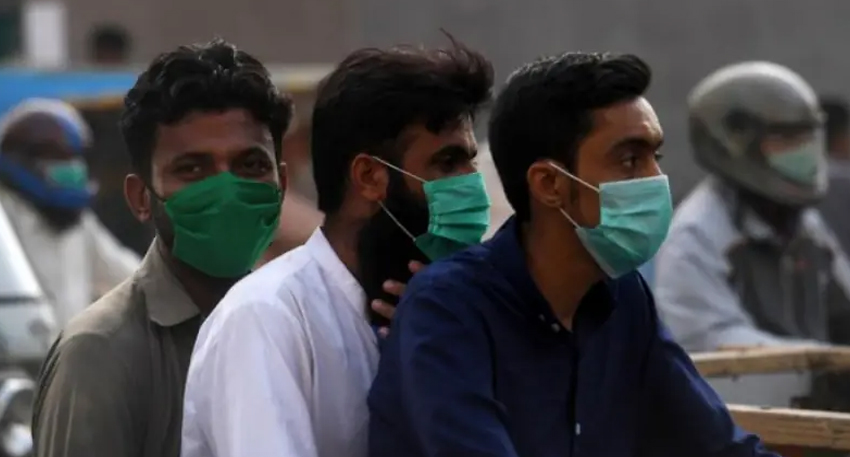
The Indus Water Treaty is a water-sharing agreement between Pakistan and India, facilitated by the World Bank. It allocates the waters of the Indus River system between the two countries. It established the India-Pakistan Indus Commission, which is supposed to resolve any problems that arise.
As per Article XII subsection 4 of the Indus Waters Treaty, the provisions of the agreement will “continue in force until terminated by a duly ratified treaty concluded for that purpose between the two governments”.
Read more: What the suspension of SAARC Visa Exemption Scheme means for Pakistanis
New Delhi said in an other statement that the Attari border check post was closed; Pakistanis in India under the Saarc Visa Exemption Scheme had 48 hours to leave the country, while others could return by May 1; defence personnel at the Pakistani High Commission in India had a week to leave the country and staff at the high commissions would be reduced as well.
The attack took place in Pahalgam — a tourist hotspot in the scenic Muslim-majority territory that draws thousands of visitors every summer — and at least 26 people were killed, all men, while police said another 17 people were injured, when gunmen opened fire on visitors in the popular destination, AFP reported.
The Cabinet Committee on Security (CCS), India’s highest decision-making body on national security, held a meeting today under Prime Minister Narendra Modi on the incident, Foreign Secretary Vikram Misri of India’s Ministry of External Affairs (MEA) said while addressing a press conference.
“In the briefing to the CCS, the cross-border linkages of the terrorist attack were brought out. It was noted that this attack came in the wake of the successful holding of the elections in the union territory and its steady progress towards economic growth and development. Recognising the seriousness of this terrorist attack, the CCS decided upon the following measures: the Indus Waters Treaty of 1960 will be held in abeyance with immediate effect until Pakistan credibly and irrevocably abjures its support for cross-border terrorism.”
India blames Pakistan for pushing fighters across the heavily militarised Line of Control (LoC) between the two countries to launch attacks on Indian forces. However, Islamabad has repeatedly denied the allegation.
Meanwhile, Pakistan’s Defence Minister Khawaja Asif had categorically ruled out Pakistan’s involvement in the incident in an interview earlier today.
In a statement, Foreign Office Spokesperson Shafqat Khan said, “We are concerned at the loss of tourists’ lives in an attack in Anantnag district of Indian Illegally Occupied Jammu and Kashmir. We extend our condolences to the near ones of the deceased and wish the injured a speedy recovery,” he added.
In his other announcements, the Indian foreign secretary said movement at the Attari border check post would be closed with immediate effect. “Those who have crossed over with valid endorsements may return through that route before May 1, 2025,” he added.
Khawaja Asif termed the incident a “false flag operation”. “We cannot ever rule this out, the possibility [that it was a false flag] will be there,” he said.
He added that allegations levelled against Pakistan were unfounded.
“There are plenty of homegrown organisations within India,” Asif said. “We condemn terrorism in all its forms, since Pakistan has been the most affected by terrorism. We are the last country that would support terrorism after the effect it has had on us.”
When asked if Pakistan would be able to provide a military response, Asif recounted when Indian aircraft conducted a bombing in Balakot in 2019.
He said, “Everyone remembers what happened with Abhinandan,” referring to an Indian pilot shot down and captured by Pakistani forces.




